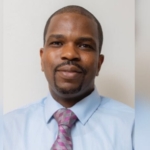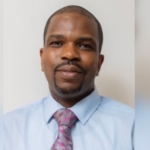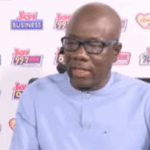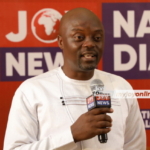
West Africa is entering a dangerous new era, and Ghana can no longer pretend that the storms sweeping across the region have nothing to do with us. From Bamako to Ouagadougou, Niamey to Conakry, and now Guinea-Bissau, the resurgence of military takeovers is a direct indictment of political systems that have failed to meet the basic needs of ordinary citizens. These events are not isolated. They reflect a deep regional frustration rooted in poverty, corruption, exclusion, and the widening gap between political elites and the masses they claim to serve. Ghana must study this moment carefully because it shows us what happens when a democracy stops answering to its people.
The painful truth is that the wave of coups across West Africa stems from the inability of political leaders to provide the necessities of life for the majority. When the basics of existence, such as jobs, water, housing, and dignity, become luxuries, anger begins to simmer beneath the surface. People start asking what democracy really means when their lives are not improving. The rise of military rule in our neighbourhood is not simply a rejection of elections. It is a rejection of systems that promised empowerment but delivered very little. If Ghana ignores these lessons, we risk following the same path.
Part of the problem lies in the model of governance we inherited. Western-style liberal democracy, as practised in Africa, does not align with our cultural foundations or with the communal ethos that traditionally held our societies together. Instead of consensus, it breeds egoism. Instead of unity, it partitions our people into rigid electoral camps.
Instead of cooperation, it rewards rivalry. It discourages coalition building and creates a political environment where leaders feel accountable to party financiers, ethnic blocs, and foreign interests rather than to the ordinary Ghanaian. Nothing in Africa’s political heritage teaches us that legitimacy must come from defeating a rival every four years. Our traditional systems valued dialogue, reconciliation, moral responsibility, and collective decision-making. What we borrowed from colonial rule was the opposite.
If we are serious about going Afrocentric and grounding our nation in true African egalitarian values, then we must boldly reject the model of Western-style democracy that has failed to reflect who we are and how our societies function. Proclaiming Afrocentric ideals while practising foreign political systems that undermine our social cohesion is a contradiction we can no longer afford. Ghana cannot build its future on inherited structures that do not align with our cultural DNA.
At the same time, the youth of today want something fundamentally different. They want jobs, opportunities, dignity, and sustainable growth. They want leaders who can deliver results, not empty speeches. Yet the type of democracy that would gel these aspirations and sustain them is not the political circus we currently parade as democracy. Young people are tired of watching wrinkled-face octogenarians decide the future of a generation they no longer understand. They are tired of politicians clinging to power for partisan sustenance instead of national progress. Democracy must be judged by its ability to transform lives, not by the theatrics surrounding it.
This moment demands leaders who can think outside of the usual partisan box. Leaders who are decisive and bold enough to redesign the very architecture of our governance. The parliamentary system is not working for us. The hybrid system inherited from the Fourth Republic is an incoherent mixture of foreign ideas that produces confusion rather than progress. Even the Council of State has become an ornamental body with no real power to guide governance or protect the national interest. Ghana needs to reform these structures completely. Turn the Council of State into something meaningful with protective constitutional powers. Move away from a partisan democracy that is alien to African political culture. Build a system rooted in African egalitarian principles where inclusion, cooperation, and meritocratic leadership matter more than party colours.
The crisis becomes even more alarming when we add external manipulation to the equation. Throughout African history, our biggest enemies have been those who prey on our internal weaknesses and use our own people against us. They used President Obama against Africa to remove Gaddafi on false grounds. They used similar strategies against Nkrumah and Lumumba. The methods have not changed. Only the actors have. Every African president should know this by now, yet many continue to chase Western approval at the expense of their citizens.
Meanwhile, the youth are watching everything with unprecedented clarity. With a single tap on their phones, fifteen-year-olds can see that a politician has accumulated a billion dollars in assets while they struggle to pay school fees. They can see what real development looks like in Asia and the Middle East. They can see that their futures are being traded like pieces in an expensive political spectacle. The illusion that the masses are uninformed no longer exists. Social media has destroyed that comfort forever.
This is why Ghana must not sleep. All it takes is a determined architect of discontent, a group of frustrated young men, and a handful of soldiers willing to present themselves as defenders of the common good. When trust collapses, hope disappears quickly. Those who think Ghana is immune are not paying attention to our economic realities, our leadership fatigue, or the growing anger silently spreading across the country. The distance between Accra and Bissau is shorter than we imagine, not in geography but in conditions.
The way forward is not to entrench the failing structures we inherited, but to rethink and redefine our democratic future. Ghana needs an African egalitarian democracy that reflects our worldview instead of an imported architecture that collapses every election cycle. We need a system that prioritises inclusion, communal responsibility, stability, and serious long-term national planning. Something closer to the Chinese developmental model, adapted to our cultural context, may offer far more potential than the adversarial politics that have kept us stagnant for thirty years.
Ghana stands at a historic crossroads. If we do not learn from the coups shaping West Africa, we will one day be taught by the same forces that reshaped Mali, Burkina Faso, Niger, and Guinea-Bissau. The lessons are clear and urgent. History never says goodbye. It always says see you tomorrow.
–
The author, Dr Manaseh Mawufemor Mintah, is an Afrocentric scholar based in Boston, Massachusetts. He holds a BA in African Studies, an MA in Sustainable International Development, an MS in Environmental Studies, a Juris Doctor with specialisation in Environmental Law, and a PhD in Environmental Studies. He is currently pursuing an LLM in International Mining and Energy Policy at the University of Dundee’s Centre for Energy, Petroleum and Mineral Law and Policy.
- President Commissions 36.5 Million Dollars Hospital In The Tain District
- You Will Not Go Free For Killing An Hard Working MP – Akufo-Addo To MP’s Killer
- I Will Lead You To Victory – Ato Forson Assures NDC Supporters
Visit Our Social Media for More




